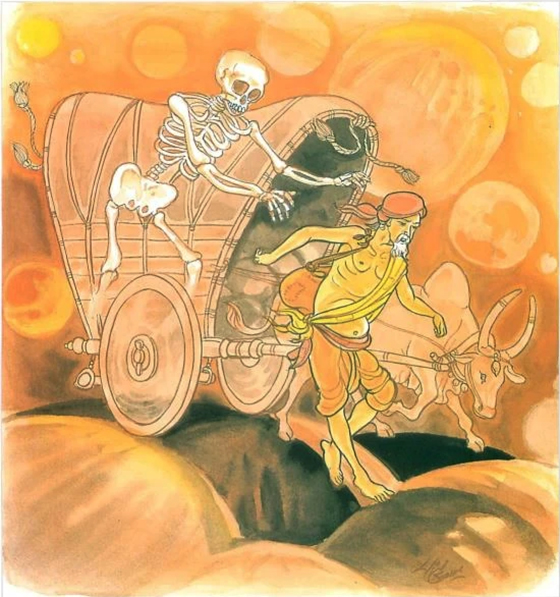The Story of Devadatta [reborn in Avici Niraya]

Verse 17: Here he is tormented, hereafter he is tormented; the evil-doer is tormented in both existences. He is tormented, and he laments: “Evil have I done.” He is even more tormented when he is reborn in one of the lower worlds (Apaya).
1. duggatim/duggati: unhappy destinations, the four lower worlds (apaya). In the case of Devadatta, avici niraya, the lowest niraya, (placement of torment).
While residing at the Jetavana monastery in Savatthi, the Buddha uttered Verse (17) of this book, with reference to Devadatta.
Devadatta was at one time residing with the Buddha in Kosambi. While staying there he realized that the Buddha was receiving much respect and honour as well as offerings. He envied the Buddha and aspired to head the Order of the bhikkhus. One day, while the Buddha was preaching at the Veluvana monastery in Rajagaha, he approached the Buddha and on the ground that the Buddha was getting old, he suggested that the Order be entrusted to his care. The Buddha rejected his offer and rebuked him, saying that he was a swallower of other people’s spittle. The Buddha next asked the Samgha to carry out an act of proclamation (Pakasaniya kamma*) regarding Devadatta.
Devadatta felt aggrieved and vowed vengeance against the Buddha. Three times, he attempted to kill the Buddha: first, by employing some archers; secondly, by climbing up the Gijjhakuta hill and rolling down a big piece of rock on to the Buddha; and thirdly, by causing the elephant Nalagiri to attack the Buddha. The hired assassins returned after being established in Sotapatti Fruition, without harming the Buddha. The big piece of rock rolled down by Devadatta hurt the big toe of the Buddha just a little, and when the Nalagiri elephant rushed at the Buddha, it was made docile by the Buddha. Thus Devadatta failed to kill the Buddha, and he tried another tactic. He tried to break up the Order of the bhikkhus by taking away some newly admitted bhikkhus with him to Gayasisa; however, most of them were brought back by Thera Sariputta and Thera Maha Moggallana.
Later, Devadatta fell ill. He had been ill for nine months when he asked his pupils to take him to the Buddha, and subsequently made the trip to the Jetavana monastery. Hearing that Devadatta was coming, the Buddha told his disciples that Devadatta would never get the opportunity to see him. Continue reading








